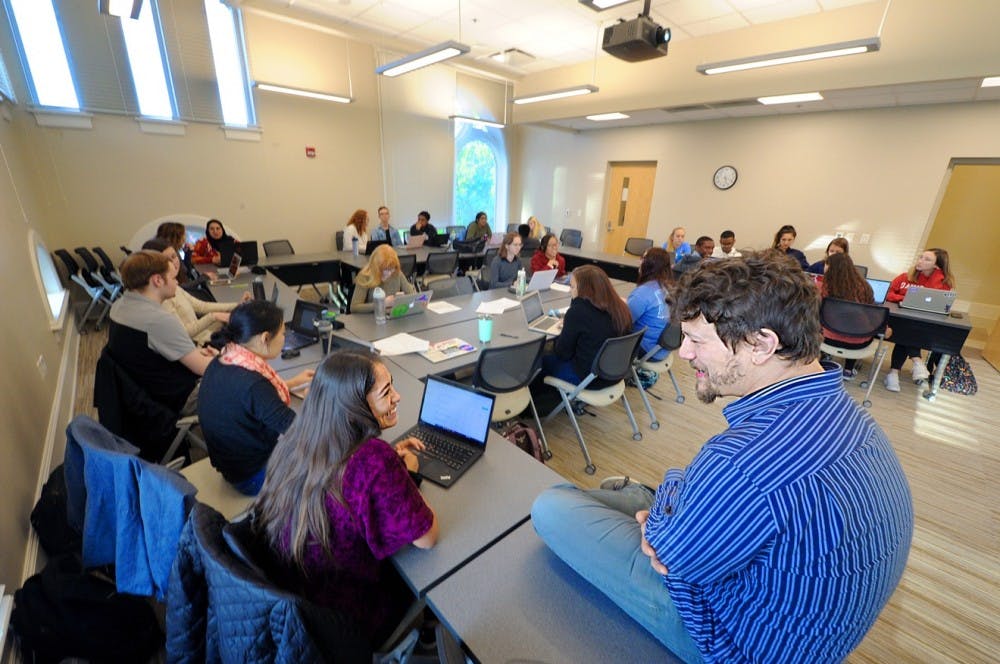Helping Give Away Psychological Science is bridging the gap between clinicians, researchers, students and the general public by posting free clinical assessments and mental health resources online.
The nonprofit organization originated from the classroom and research lab of Eric Youngstrom, a psychology, neuroscience and psychiatry professor at UNC, and Mian-Li Ong, one of his graduate students.
“I taught graduate student assessment classes at Case Western (Reserve University) and here as well,” Youngstrom said. “The problem is you take the class one year, and the next year you are seeing some patients you don’t have notes on.”
Youngstrom said his and Ong’s original idea was to digitize graduate students’ diagnostic assessment pages from their final class project to facilitate their first clinical year interacting with patients. They realized that Wikiversity would be the most efficient platform because the assessments could be easily retrieved, updated and shared.
To date, the University's inaugural chapter includes about 40 members who have posted around 400,000 total words on Wikipedia and Wikiversity. For the past two and a half years, the club’s pages have collectively received around 61.4 million visits.
Two recent UNC alumni, Delaney Waggener and Breana Smith helped create an HGAPS club through the Office of Student Life and Leadership. Youngstrom said other universities are considering starting their own chapters of HGAPS on their campuses, including Appalachian State University, Florida International University, University of Miami, the University of Chicago, Palo Alto University and University of Maryland.
Since the club’s inception in 2016, HGAPS has grown beyond Youngstrom’s original idea of publishing assessments on Wikiversity. The club now has five different teams that work on whatever projects are pressing at the moment, said Lizzie Wilson, leader of the Team Screening Center and former president of HGAPS. Those teams include Infographics, Social Media, "13 Reasons Why," Wiki Content Editors and Screening Center.
Wilson said the Wiki Content Editors are dedicated to HGAPS’s roots by editing a variety of portfolios that are used by clinicians to assess specific disorders. The other teams, however, have worked toward transforming technical psychological information into a manner that is easily accessible, relevant and understandable to the general public.
“We tried to do things that involved just the general public so we started doing things that were sort of (disaster-relief related), so things like providing psychological first aid to people that were impacted by big disaster events,” Wilson said. “We just did one for the Pittsburgh shooting, but we started with the Parkland shooting and for the hurricane. We responded to "13 Reasons Why" and things that are personal projects that people would want to read about to try and increase the availability of information to the general public.”




